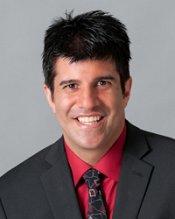Thinking about college: think also about career
By Daryl CapuanoCollege AdviceCollege counseling has become an increasing part of our work at The Learning Consultants. We have several excellent counselors based along the Shoreline of CT and into Fairfield County. And a bigger part of my specific work has been career counseling in the context of college counseling.
Since my own career change is part of the reason, I started our subsidiary, Career Counseling Connecticut, I’ll relay my story:
When I am asked which book had the greatest career impact for me, I give what others think is a surprising answer: Man’s Search For Meaning by Victor Frankl. Frankl’s true account of his days in a Nazi concentration account presents one of the most compelling demonstrations of the philosophical truth that our lives really are what we think about our lives, more than external circumstance, Buddhists, Stoic philosophers, cognitive behavioral therapists, and others have come to similar conclusions. But Frankl was put to the test and he wrote: “between stimulus and response, there is freedom to choose” to capture the notion that we can process our thoughts differently. Those who survived the camps suffered mightily but clung on to a glimmer of hope that all stemmed from the same view that life has meaning. For each, the meaning might have been different with family being the most significant reason.
While I was never one to simply let life take me in any direction, I did find myself feeling trapped when I was practicing law. Having told people since the age of 10 that I was going to be an attorney – a thought (stimulus) planted in my brain from my mother and then cultivated through both public approval from adults and rational evidence from school and my interests – and then having spent more than a decade in law school and law jobs, my response was the very natural one: stay as a lawyer.
But the better part of me knew I had freedom to choose. In addition, Frankl’s other dominant focus was on meaning. Very clearly, those who served others had greater purposefulness in their lives. The most authentic reason I had for becoming an attorney was that I wanted to make a positive difference in the lives of others. When I was in public service, I thought I was but in private practice, not so much. The thought that I could make a difference through education-counseling was the “calling for meaning” that led me to finally make my break.

CEO, The Learning Consultants and Connecticut’s top private education consultant
full bio

